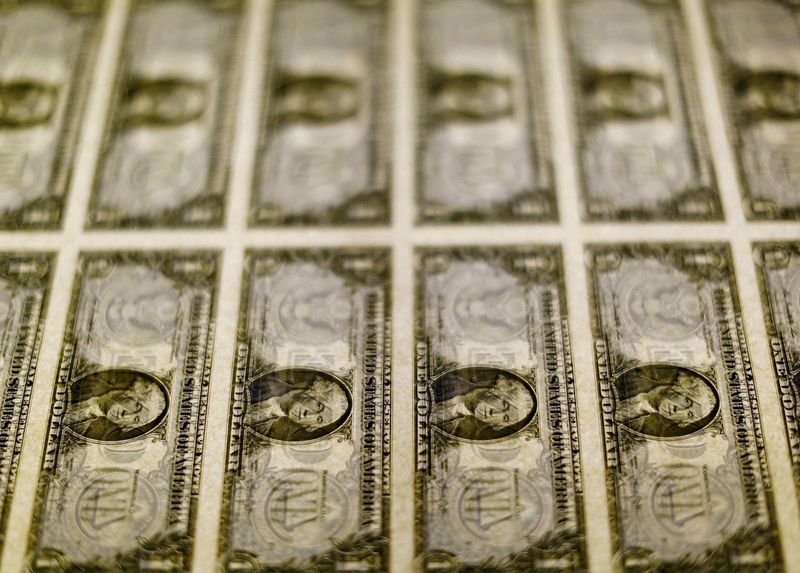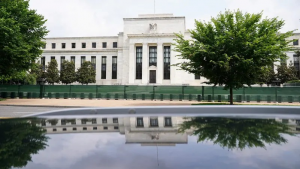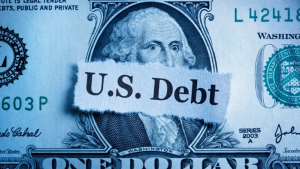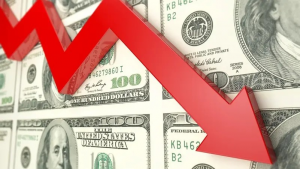The dollar edged down on Monday but remained within striking distance of its highest level in almost two weeks, as investors' focus moved to a U.S. jobs report due at the end of this week.
U.S. payrolls, due on Friday, will be crucial after Federal Reserve chair Jerome Powell pivoted from a battle against inflation to a readiness to protect against job losses.
Analysts say the job figures will determine the magnitude of the Federal Reserve's expected rate cut. Markets have already priced in for weeks a cut of 25 basis points.
The greenback advanced to its strongest since Aug. 20, buoyed by a rise in long-term Treasury yields to the highest since mid-August as inflation data pointed to a smaller rate cut and gross domestic product figures indicated the economy was on solid enough footing to give the Federal Reserve room to be less aggressive in easing its policy.
Traders currently lay 33% odds of a 50-bps Fed rate cut this month, while fully pricing in a quarter-point cut. A week earlier, expectations were 36% for the larger reduction.
The dollar index measure against six major peers weakened by 0.10% to 101.65, after hitting 101.79, a level not seen since Aug. 20.
The euro firmed to $1.1062, after hitting $1.1043, its lowest since Aug. 19.
On the political front in Europe, the Alternative for Germany (AfD) was on track to become the first far-right party to win a regional election in Germany since World War Two, projections showed, giving it unprecedented power even if other parties are sure to exclude it from office.
"The only clear lessons are that the far-right AfD continues to resist the temptation of power until they get an outright majority," said Christian Schulz, deputy chief European economist at Citi.
Some investors worried that political stalemate in Berlin and also in Paris would prevent Europe from moving ahead with integration initiatives they think are necessary to unleash its growth potential and play a bigger role in global affairs.
Money markets reduced their bets on rate cuts from the European Central Bank as August services inflation remained sticky and ECB policymakers provided no clues about additional monetary easing after a widely expected September rate cut.
They have priced in 59 bps worth of rate cuts by year-end from 67 bps right after the release of German inflation data and from 70 bps in mid-August.
NON-FARM PAYROLLS
A U.S. public holiday on Monday makes for a potentially slow start to the week for the dollar, analysts said, but the following days will see a steady flow of macroeconomic data that culminates with the non-farm payrolls on Friday.
Economists surveyed by Reuters expect the addition of 165,000 U.S. jobs in August, up from an increase of 114,000 in the previous month, and the unemployment rate ticking lower to 4.2%.
"Should the U.S. economy add 150,000 jobs or more and the unemployment rate ease to 4.2% or below, it would increase confidence that the economy is on target for a soft landing," cementing expectations for a 25-bps rate reduction this month, said IG analyst Tony Sycamore.
3rd party Ad. Not an offer or recommendation by Investing.com. See disclosure here or remove ads. However, Sycamore believes recent dollar strength against the likes of the yen is unlikely to last.
"The pair would need to see a sustained break above resistance at 152.00 to negate the downside risks," he said.
Treasury bonds won't trade on Monday due to the U.S. holiday, but the 10-year yield stood at 3.9110% following a 4.4-bp rise on Friday.
The dollar rose as much as 0.05% to 146.26 yen.
The dollar index sank as low as 100.51 last week for the first time since July 2023 after Fed Chair Powell sent a strong message that the easing campaign would begin at the upcoming policy meeting.













